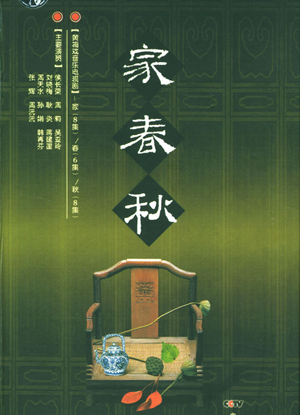It is here that a fact falls naturally into place, which we must not omit, because it is one of the sort which show us best what sort of a man the Bishop of D—— was.
After the destruction of the band of Gaspard Bes, who had infested the gorges of Ollioules, one of his lieutenants, Cravatte, took refuge in the mountains. He concealed himself for some time with his bandits, the remnant of Gaspard Bes's troop, in the county of Nice; then he made his way to Piedmont, and suddenly reappeared in France, in the vicinity of Barcelonette. He was first seen at Jauziers, then at Tuiles. He hid himself in the caverns of the Joug-de-l'Aigle, and thence he descended towards the hamlets and villages through the ravines of Ubaye and Ubayette.
He even pushed as far as Embrun, entered the cathedral one night, and despoiled the sacristy. His highway robberies laid waste the country-side. The gendarmes were set on his track, but in vain. He always escaped; sometimes he resisted by main force. He was a bold wretch. In the midst of all this terror the Bishop arrived. He was making his circuit to Chastelar. The mayor came to meet him, and urged him to retrace his steps. Cravatte was in possession of the mountains as far as Arche, and beyond; there was danger even with an escort; it merely exposed three or four unfortunate gendarmes to no purpose.
"Therefore," said the Bishop, "I intend to go without escort."
"You do not really mean that, Monseigneur!" exclaimed the mayor.
"I do mean it so thoroughly that I absolutely refuse any gendarmes, and shall set out in an hour."
"Set out?"
"Set out."
"Alone?"
"Alone."
"Monseigneur, you will not do that!"
"There exists yonder in the mountains," said the Bishop, a tiny community no bigger than that, which I have not seen for three years. They are my good friends, those gentle and honest shepherds. They own one goat out of every thirty that they tend. They make very pretty woollen cords of various colors, and they play the mountain airs on little flutes with six holes. They need to be told of the good God now and then. What would they say to a bishop who was afraid? What would they say if I did not go?"
"But the brigands, Monseigneur?"
"Hold," said the Bishop, "I must think of that. You are right. I may meet them. They, too, need to be told of the good God."
"But, Monseigneur, there is a band of them! A flock of wolves!"
"Monsieur le maire, it may be that it is of this very flock of wolves that Jesus has constituted me the shepherd. Who knows the ways of Providence?"
"They will rob you, Monseigneur."
"I have nothing."
"They will kill you."
"An old goodman of a priest, who passes along mumbling his prayers? Bah! To what purpose?"
"Oh, mon Dieu! what if you should meet them!"
"I should beg alms of them for my poor."
"Do not go, Monseigneur. In the name of Heaven! You are risking your life!"
"Monsieur le maire," said the Bishop, "is that really all?
I am not in the world to guard my own life, but to guard souls."
They had to allow him to do as he pleased. He set out, accompanied only by a child who offered to serve as a guide. His obstinacy was bruited about the country-side, and caused great consternation.
He would take neither his sister nor Madame Magloire. He traversed the mountain on mule-back, encountered no one, and arrived safe and sound at the residence of his "good friends," the shepherds. He remained there for a fortnight, preaching, administering the sacrament, teaching, exhorting. When the time of his departure approached, he resolved to chant a Te Deum pontifically. He mentioned it to the cure. But what was to be done? There were no episcopal ornaments. They could only place at his disposal a wretched village sacristy, with a few ancient chasubles of threadbare damask adorned with imitation lace.
"Bah!" said the Bishop. "Let us announce our Te Deum from the pulpit, nevertheless, Monsieur le Cure. Things will arrange themselves."
They instituted a search in the churches of the neighborhood. All the magnificence of these humble parishes combined would not have sufficed to clothe the chorister of a cathedral properly.
While they were thus embarrassed, a large chest was brought and deposited in the presbytery for the Bishop, by two unknown horsemen, who departed on the instant. The chest was opened; it contained a cope of cloth of gold, a mitre ornamented with diamonds, an archbishop's cross, a magnificent crosier,--all the pontifical vestments which had been stolen a month previously from the treasury of Notre Dame d'Embrun. In the chest was a paper, on which these words were written, "From Cravatte to Monseigneur Bienvenu."
"Did not I say that things would come right of themselves?" said the Bishop. Then he added, with a smile, "To him who contents himself with the surplice of a curate, God sends the cope of an archbishop."
"Monseigneur," murmured the cure, throwing back his head with a smile. "God--or the Devil."
The Bishop looked steadily at the cure, and repeated with authority, "God!"
When he returned to Chastelar, the people came out to stare at him as at a curiosity, all along the road. At the priest's house in Chastelar he rejoined Mademoiselle Baptistine and Madame Magloire, who were waiting for him, and he said to his sister: "Well! Was I in the right? The poor priest went to his poor mountaineers with empty hands, and he returns from them with his hands full. I set out bearing only my faith in God; I have brought back the treasure of a cathedral."
That evening, before he went to bed, he said again: "Let us never fear robbers nor murderers. Those are dangers from without, petty dangers. Let us fear ourselves. Prejudices are the real robbers; vices are the real murderers. The great dangers lie within ourselves. What matters it what threatens our head or our purse! Let us think only of that which threatens our soul."
Then, turning to his sister: "Sister, never a precaution on the part of the priest, against his fellow-man. That which his fellow does, God permits. Let us confine ourselves to prayer, when we think that a danger is approaching us. Let us pray, not for ourselves, but that our brother may not fall into sin on our account."
However, such incidents were rare in his life. We relate those of which we know; but generally he passed his life in doing the same things at the same moment. One month of his year resembled one hour of his day.
As to what became of "the treasure" of the cathedral of Embrun, we should be embarrassed by any inquiry in that direction. It consisted of very handsome things, very tempting things, and things which were very well adapted to be stolen for the benefit of the unfortunate. Stolen they had already been elsewhere. Half of the adventure was completed; it only remained to impart a new direction to the theft, and to cause it to take a short trip in the direction of the poor. However, we make no assertions on this point. Only, a rather obscure note was found among the Bishop's papers, which may bear some relation to this matter, and which is couched in these terms, "The question is, to decide whether this should be turned over to the cathedral or to the hospital."
此地自然有着一件我们不应忽略的事,因为这件事足以说明迪涅的这位主教先生是怎样一个人。
加斯帕尔·白匪帮曾一度横行在阿柳尔峡一带,在被击溃以后,有个叫克拉华特的部将却还躲在山林里。他领着他的徒众,加斯帕尔·白的残部,在尼斯伯爵领地里藏匿了一些时候,继又转到皮埃蒙特区①,忽而又在法国境内巴塞隆内特附近出现。最初,有人曾在若齐埃见过他,过后又在翟伊尔见过他。他躲在鹰轭山洞里,从那里出来,经过玉碑和小玉碑峡谷,走向村落和乡镇。他甚至敢于进逼昂布伦,黑夜侵入天主堂,卷走圣衣库中的东西。他的劫掠使那一乡的人惴惴不安。警察追击也无用。他屡次逃脱,有时还公然抵抗。他是个大胆的恶汉。正当人心惶惶时主教来了。他正在那一乡巡视。乡长赶到沙斯特拉来找他,并且劝他转回去。当时克拉华特已占据那座山,直达阿什一带,甚至还更远。即使由卫队护送,也有危险。那不过是把三四个警察白白拿去送死罢了。
①皮埃蒙特区(Piémont),在意大利北部。
“那么,”主教说,“我打算不带卫兵去。”
“您怎么可以那样打算,主教?”那乡长说。
“我就那样打算,我绝对拒绝卫兵,并且一个钟头以内我就要走。”
“走?”
“走。”
“一个人去吗?”
“一个人。”
“主教,您不能那样做。”
“在那儿,”主教又说,“有个穷苦的小村子,才这么一点大,我三年没有见着他们了。那里的人都是我的好朋友。一些和蔼诚实的牧人。他们牧羊,每三十头母羊里有一头是属于他们自己的。他们能做各种颜色的羊毛绳,非常好看。他们用六孔小笛吹各种山歌。他们需要有人不时和他们谈谈慈悲的上帝。主教如果也害怕,他们将说什么呢?假使我不到那里去一下,他们将说些什么呢?”
“可是,主教,您对那些强盗怎么办,万一您遇见了强盗!”
“对呀,”主教说,“我想起来了。您说得有理。我可以遇见他们。他们也需要有人和他们谈谈慈悲的上帝。”
“主教,那是一伙土匪呀,是一群狼呀!”
“乡长先生,也许耶稣正要我去当那一群狼的牧人呢,谁知道主宰的旨意?”
“主教,他们会把您抢光的。”
“我没有什么可抢的。”
“他们会杀害您的。”
“杀害一个念着消食经过路的老教士?啐!那有什么好处?”
“唉!我的上帝!万一您碰见他们!”
“我就请他们捐几文给我的穷人们。”
“主教,以上天之名,不要到那儿去吧!您冒着生命危险呢。”
“乡长先生,”主教说,“就只是这点小事吗?我活在世上不是为了自己的生命,而是来保护世人的心灵的。”
只好让他走。他走了,只有一个自愿当向导的小孩伴着他。他那种蛮劲使那一乡议论纷纷,甚至个个替他捏一把汗。
他不愿带他的妹子,也没有带马格洛大娘。他骑上骡子,穿过山路,一个人也没有碰见,平平安安到了他的“好朋友”棗牧人的家里。他在那里住了两星期,传道,行圣礼,教育人,感化人。到了快离开时,他决计用主教的仪式做一场大弥撒。他和本堂神甫商量。但是怎么办呢?没有主教的服饰。他们只能把简陋的乡间圣衣库供他使用,那里只有几件破旧的、装着假金线的锦缎祭服。
“没有关系!”主教说。“神甫先生,我们不妨把要做大弥撤那件事在下次礼拜时,向大众宣告一下,会有办法的。”
在附近的几个天主堂里都寻遍了。那些穷教堂里所有的精华,凑拢来还不能适当装饰一个大天主堂里的唱诗童子。
正在大家为难时,有两个陌生人,骑着马,带了一只大箱子,送来给主教先生,箱子放在本堂神甫家里人立即走了。打开箱子一看,里面有件金线呢披氅,一顶装有金刚钻的主教法冠,一个大主教的十字架,一条华美的法杖,一个月以前,在昂布伦圣母堂的圣衣库里被抢的法衣,全部都在。箱子里有张纸,上面写着:“克拉华特呈奉卞福汝主教。”
“我早说过会有办法的!”主教说,随后他含笑补充一句,“以神甫的白衣自足的人蒙上帝赐来大主教的披氅了。”
“我的主教,”神甫点头含笑低声说,“不是上帝便是魔鬼。”
主教用眼睛盯住神甫,一本正经地说:“是上帝!”
回沙斯特拉时一路上都有人来看他,引为奇谈。他在沙斯特拉的神甫家里,又和巴狄斯丁姑娘和马格洛大娘相见了,她们也正渴望他回来。他对他的妹子说:
“怎样,我的打算没有错吧?我这穷教士,两手空空,跑到山里那些穷百姓家里去过了,现在又满载而归。我当初出发时,只带着一片信仰上帝的诚心,回来时,却把一个天主堂的宝库带回了。”
晚上,他在睡前还说:
“永远不要害怕盗贼和杀人犯。那是身外的危险。我们应当害怕自己。偏见便是盗贼,恶习便是杀人犯。重大的危险都在我们自己的心里。危害我们脑袋和钱袋的人何足介意呢?我们只须想到危害灵魂的东西就得了。”
他又转过去对他妹子说:
“妹妹,教士永远不可提防他的邻人。邻人做的事,总是上帝允许的。我们在危险临头时,只应祷告上帝。祈求他,不是为了我们自己,而是为了不要让我们的兄弟因我们而犯罪。”
总之,他生平的特殊事故不多。我们就自己所知道的谈谈。不过他在他一生中,总是在同样的时刻做同样的事。他一年的一月,就象他一日的一时。
至于昂布伦天主堂的“财宝”下落如何,我们对这问题,却有些难于回答。那都是些美丽的、令人爱不忍释的、很值得偷去救济穷人的东西。况且那些东西是早已被人偷过了的。那种冒险行为已经完成了一半,余下的工作只须改变偷窃的目的,再向穷人那边走一小段路就可以了。关于这问题,我们什么也不肯定。不过,曾经有人在主教的纸堆里发现过一张词意不明的条子,也许正是指那件事的,上面写着:“问题在于明确这东两应当归天主堂还是归医院。”







